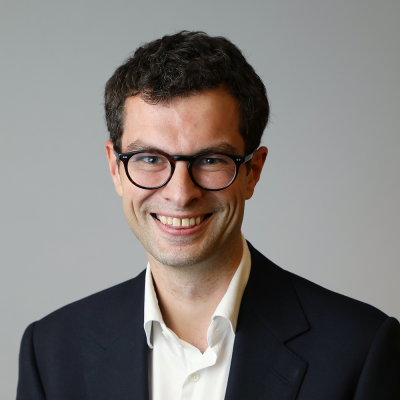Changing leadership culture, one conversation at a time
3 December 2018

On 27 November, we announced that GenerationQ, our Quality Improvement and Leadership Fellowship, is open for applications for its ninth cohort. We also made it known that this will be the final opportunity to apply for the programme in its current form.
The response from Fellows has been genuine and heartfelt. There have been pleas to continue, and to scale up rather than move on. In keeping with the values of the Fellowship, these calls have been constructive, typically accompanied by a generous offer of time to talk to prospective Fellows, or thoughtful advice on how to sustain and nurture the intellectual and social capital built over the past decade.
For those of us fortunate enough to have experienced GenerationQ, it’s not hard to understand why it elicited this strong response. The Department of Health and Social Care recently published the grim findings of the Kerr review: that the leadership culture in the NHS is one where ‘bullying and discrimination are prevalent and accepted’. The Fellowship, by contrast, is characterised by a humanity, realism, vulnerability, kindness and appreciation of complexity that is the polar opposite of the ‘negative behaviours’ described in the Kerr review. Public statements from Fellows about the impact of the Fellowship on their careers and lives are compelling testimony. In an evaluation of the first four cohorts, Fellows gave an overall satisfaction rating of 9.7 out of 10, and reported a significant increase in their self-assessed ability to lead improvement.
Examples of career progression and inspiration abound. Fellows were usually selected while working at one or two positions below board level. They now lead improvement work nationally, regionally and locally across the UK, are chief executives and board members of local health and care organisations and charities, educate and support others, and even run their own improvement consultancies with others they met through the Fellowship.
Why announce the final round?
So why announce that this will be the final round of the Fellowship? I feel it’s important to be transparent that this is the last opportunity to apply, given that some people might delay if they thought they could apply in the future. Announcing now also allows time for past, current and future Fellows to talk to us about what should happen over the next 2 years to secure a lasting legacy from the investment, and about what comes next. This year, we supported the faculty and Fellows to publish two books sharing learning from the programme (Hope Beyond the Headlines and Beyond the Toolkit). In 2019, we will host an inquiry day, open to all Fellows, where together we can create plans for the future.
Why not continue GenerationQ?
But, you might ask, with something as manifestly successful and popular as GenerationQ, why not continue in perpetuity?
First, the undoubted quality and impact of GenerationQ comes at a significant cost per Fellow, which our board quite reasonably requires us to review to assure ourselves of value for money. The agreement to fund the seventh, eighth and ninth cohorts in 2016 was contingent on us running a new process after 2020.
Second, a leadership programme like GenerationQ can be complementary to, and ideally influence, mainstream initiatives such as the NHS Leadership Academy. But a foundation-provided programme risks substituting for things that a publicly funded system can and should do for itself.
And finally, we need to ensure the support we offer is right for achieving our mission of improving health and health care. We need to look again at and plan for leading and managing effective change over the next decades. Leadership will remain an intensely human and individual experience, requiring all the sensing, relational and personal knowledge, skills and capabilities it does now. But the external context has changed and will continue to change, and whatever support we offer in future will need to take account of this.
Building on success for the future
The form and focus of our future work will take shape over the next 18 months. I would like us to keep the essence of timeless leadership values and challenges, relational skills and focus on personal leadership that have made GenerationQ so successful. The goal of developing a more humane leadership culture that will create health and care organisations people want to work in is a long-term one, and will only be delivered by a much broader movement than anything we do alone from the Health Foundation. But we all have a part to play: you will often hear GenerationQ Fellows saying that change starts and continues ‘one conversation at a time’. It’s the choices we each make hour by hour, day by day about how we speak and listen to each other, and what we choose to accept or challenge, that will in time add up to the bigger change we want to see.
Will Warburton is Director of Improvement at the Health Foundation.
Further reading
Work with us
We look for talented and passionate individuals as everyone at the Health Foundation has an important role to play.
View current vacanciesThe Q community
Q is an initiative connecting people with improvement expertise across the UK.
Find out more

